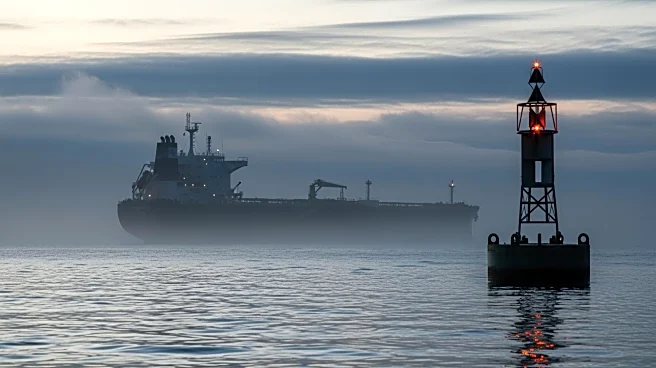What's Happening?
The European Union is prioritizing actions against Russia's shadow fleet to reduce its oil revenues. EU High Representative Kaja Kallas stated that slowing down the shadow fleet is crucial for cutting
Russia's income. France and Estonia have taken steps to challenge these tankers, including detaining vessels and verifying their flags and insurance. The EU's sanctions have led to a 30% drop in revenues from oil shipped via the Baltic and Black Sea. The EU plans to enhance inspection rights and work with the European Commission to expedite actions against the shadow fleet.
Why It's Important?
The EU's focus on Russia's shadow fleet is part of broader sanctions aimed at weakening Russia economically amid the ongoing conflict in Ukraine. By targeting oil revenues, the EU seeks to diminish Russia's financial capacity to sustain its military operations. The reduction in oil exports and revenues could have significant implications for Russia's economy and its ability to fund the war. The EU's actions also reflect a coordinated effort to enforce sanctions and maintain pressure on Russia.
What's Next?
The EU will continue diplomatic efforts to establish pre-boarding agreements and enhance inspection rights. Member states are authorized to challenge tankers in local waters, demanding proof of insurance. The EU and NATO are supporting increased monitoring efforts, particularly in the Baltic region. Further sanctions and measures are expected as the EU aims to accelerate its actions against Russia's shadow fleet.









